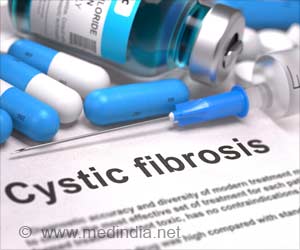The UniSA research team, which includes Professor Clive Prestidge, Dr Nicky Thomas, and PhD candidate, Chelsea Thorn, says the discovery could transform the lives of people living with CF.
“CF is a progressive, genetic disease that causes persistent, chronic lung infections and limits a person’s ability to breathe,” Thorn says.
“The disease causes thick, sticky mucus to clog a person’s airways, attracting germs and bacteria, such as Pseudomonas aeruginosa, which leads to recurring infections and blockages.
“Tobramycin is commonly used to treat these infections but increasingly antibiotics are failing to make any significant difference to lung infections, leaving sufferers requiring life-long antibiotic therapy administered every month.
“Our research successfully treats advanced human cell culture lung infections using nano-enhanced Tobramycin and shows how it can eradicate serious and persistent infections after only two doses.
“This could be a real game-changer for people living with CF.”
Dr Nicky Thomas, says the discovery continues the global battle to eradicate and prevent Pseudomonas aeruginosa.
Tobramycin acts by stopping the synthesis of bacteria and causing cell membrane damage. Yet, as it’s a concentration-dependent antibiotic, achieving a sufficiently high concentration is critical,” Dr Thomas says.
“Our technology improves the performance of Tobramycin without increasing the toxicity of the drug, so what we’re doing is a far more effective and efficient treatment for chronic lung infections.”
The technology is currently entering pre-clinical trials and hopes to be on the market in the next five years.
Source: Medindia



